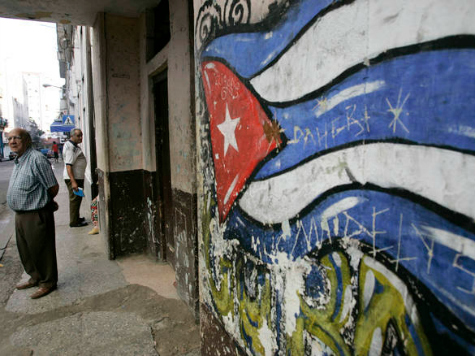The Associated Press has followed up their report on a USAID social media project that attracted 40,000 Cuban users with a report on an even more ambitious human rights experiment: a plan by the agency to infiltrate and promote anti-communist Cuban rappers.
The extensive report suffers from the same failings as the Associated Press’s work on ZunZuneo, a Twitter-like social media network created by the United States Agency for International Development intended to help dissident thinkers find each other and express themselves. The language used in both reports indicates that the project was a failure and an outrage, with the headline booming that the latter project “undermines Cuba’s hip-hop protest scene” and that the operation was “run by amateurs.”
While the report does not criticize the Castro government at any interval, it condemns the United States government for “repeatedly put innocent Cubans and its own operatives in jeopardy despite warning signs,” using the Cuban government’s oppression as evidence: “Authorities detained or interrogated musicians or USAID operatives at least six times, often confiscating their computers and thumb drives, which in some cases contained material linking them to USAID.”
The facts in the report seem to indicate that it was the Cuban government that was undermining Cuba’s hip-hop protest scene, which very much already existed before the US agency began its work. The project apparently began in 2009, run by a Serbian music promoter who traveled to Cuba and made connections with some of the most openly anti-Castro rappers in the field. One of those rappers, Aldo Rodríguez, was already writing politically turbulent songs and performing them in public. Rodríguez, who has since escaped the regime and lives in Florida, repeatedly found himself in conflict with the Cuban government for calling Cuban police “comemierdas” (“shit-eaters,” a very typically Cuban insult) and rapping directly against the government in public.
Nonetheless, the USAID project somehow managed to get Rodríguez to grow into a big-name act. He took a picture with Juanes, the famed Colombian singer, and even performed on the same stage as government-friendly troubadour legend Silvio Rodríguez. Aldo Rodríguez shouted “Viva Cuba libre!” on the stage of Cuba’s largest independent music festival, which USAID helped grow before the government shut it down. Silvio Rodríguez, meanwhile, even helped Aldo receive his computer back after yet another arrest.
The USAID project was also successful in organizing trips to Europe for rappers who, due to their political inclinations, may have never otherwise had the opportunity to leave the island. The European trips were meant to train them in political activism, use of social media, and efficiency in spreading their message. The agent running the operation deemed it a success in correspondence acquired by AP.
The AP blames USAID for the end of Rotilla, the independent music festival, though the Cuban government shut it down. Not only did they shut down Rotilla, but, before the arrival of American agents to the scene, the government was canceling performances and had established the Agencia Cubana de Rap to control hip-hop.
The Cuban government has also made efforts to infiltrate the hip-hop scene, using rappers in political propaganda and opening their doors to communist-friendly acts. Most prominent of these is Calle 13, a Puerto-Rican anarchist rap group deemed so friendly to the government they were allowed to film not one, but two propaganda films in the country. Calle 13 has previously also collaborated with Julian Assange, and, at this year’s Latin Grammys, sang a song that calls the President of the United States a “whore.”
Cuban officials have also used hip-hop acts for propaganda to promote terrorism. In May, the Revolutionary Armed forces of Colombia (FARC) released a hip-hop video promoting themselves and “peace talks” with Colombian officials, starring Cuban government-sponsored rappers and Dutch terrorist Tanja Nijmeijer. The wealthiest non-jihadist terrorist group in the world operates out of Havana, after years of CIA-supported attacks left their core infrastructure frail.
These attempts to use hip-hop for political oppression make no appearance in the Associated Press report. Instead, it is the United States’ attempts to use hip-hop for political liberation that receive a stern reproach from the news wire service, even as the facts show USAID was not seeking to change minds, only raise the volume on already existing political dissidence.

COMMENTS
Please let us know if you're having issues with commenting.